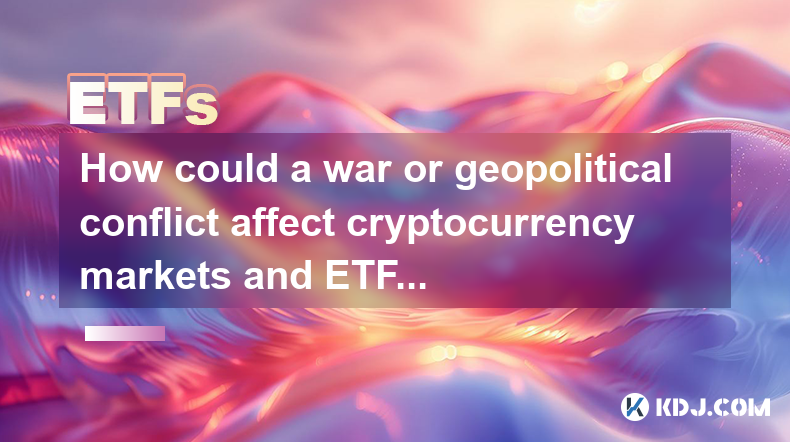-
 Bitcoin
Bitcoin $93,032.0120
6.97% -
 Ethereum
Ethereum $1,755.5270
11.64% -
 Tether USDt
Tether USDt $1.0003
0.04% -
 XRP
XRP $2.2137
6.82% -
 BNB
BNB $611.6604
2.61% -
 Solana
Solana $148.1500
8.80% -
 USDC
USDC $0.9998
-0.01% -
 Dogecoin
Dogecoin $0.1779
12.66% -
 Cardano
Cardano $0.6723
8.57% -
 TRON
TRON $0.2473
0.50% -
 Chainlink
Chainlink $14.0533
7.71% -
 Avalanche
Avalanche $22.0550
11.13% -
 Sui
Sui $2.6435
20.22% -
 UNUS SED LEO
UNUS SED LEO $9.0373
-1.11% -
 Stellar
Stellar $0.2645
5.26% -
 Shiba Inu
Shiba Inu $0.0...01356
10.18% -
 Toncoin
Toncoin $3.0721
6.27% -
 Hedera
Hedera $0.1797
6.41% -
 Bitcoin Cash
Bitcoin Cash $360.6986
4.87% -
 Litecoin
Litecoin $84.0771
8.39% -
 Hyperliquid
Hyperliquid $19.0089
5.59% -
 Polkadot
Polkadot $4.0113
5.75% -
 Dai
Dai $1.0000
0.01% -
 Bitget Token
Bitget Token $4.5450
2.46% -
 Ethena USDe
Ethena USDe $0.9995
0.02% -
 Pi
Pi $0.6476
2.14% -
 Monero
Monero $224.1400
4.09% -
 Pepe
Pepe $0.0...08748
12.85% -
 Uniswap
Uniswap $5.7900
10.15% -
 Aptos
Aptos $5.2210
5.56%
How could a war or geopolitical conflict affect cryptocurrency markets and ETFs?
Geopolitical conflicts expose cryptocurrency markets to volatility, liquidity challenges, and correlation with traditional markets, potentially influencing the performance of cryptocurrency ETFs.
Jan 07, 2025 at 05:38 am

Key Points:
- Cryptocurrency markets' exposure to geopolitical risk
- Impacts of war on economic stability
- Potential for increased volatility and decreased liquidity
- Correlation between traditional markets and cryptocurrencies
- ETF performance during geopolitical conflicts
Article:
How could a war or geopolitical conflict affect cryptocurrency markets and ETFs?
Geopolitical events can have significant ramifications for the stability of markets and the value of investments, including cryptocurrencies and exchange-traded funds (ETFs). Understanding the potential impact of a war or geopolitical conflict is crucial for investors to make informed decisions and mitigate risks.
1. Exposure of Cryptocurrency Markets to Geopolitical Risk:
Cryptocurrency markets are inherently exposed to geopolitical risk due to their global nature and sensitivity to macro-economic factors. Political instability, military conflicts, and diplomatic tensions can disrupt trade, create uncertainty, and affect investor sentiment. This can lead to price volatility, liquidity challenges, and a shift in the risk appetite of investors.
2. Impacts of War on Economic Stability:
Wars and geopolitical conflicts can severely disrupt economic stability by disrupting supply chains, increasing inflation, and eroding consumer confidence. The resulting economic uncertainty can lead to a flight from risky assets, including cryptocurrencies. Currency devaluations, interest rate fluctuations, and capital controls can further exacerbate volatility and challenge investors.
3. Potential for Increased Volatility and Decreased Liquidity:
During wartime or geopolitical conflicts, financial markets experience heightened volatility as investors readjust their expectations and seek safe haven assets. This volatility can spread to cryptocurrency markets, leading to sharp price fluctuations and a decrease in liquidity. Reduced liquidity can make it more challenging for investors to enter or exit positions, potentially amplifying price swings.
4. Correlation between Traditional Markets and Cryptocurrencies:
Cryptocurrencies have been increasingly correlated with traditional markets in recent years. As a result, geopolitical events that impact traditional markets, such as stock and bond valuations, can also affect the performance of cryptocurrencies. During periods of market turmoil, investors may sell riskier assets, including cryptocurrencies, to preserve capital.
5. ETF Performance during Geopolitical Conflicts:
Cryptocurrency ETFs track the performance of a basket of underlying crypto assets. During geopolitical conflicts, the performance of these ETFs will depend on the impact on the underlying assets. If the conflict leads to a decline in cryptocurrency prices, ETF values will decline accordingly. However, ETFs can provide diversification benefits, as they represent exposure to a range of cryptocurrencies.
FAQs:
Q: Can war or geopolitical conflicts trigger a cryptocurrency crash?
A: While a war or geopolitical conflict can increase volatility and decrease liquidity in cryptocurrency markets, it does not necessarily lead to a crash. The impact on prices depends on various factors, including the severity of the conflict, market sentiment, and the resilience of the underlying blockchain networks.
Q: How do geopolitical events affect the liquidity of cryptocurrency markets?
A: Geopolitical events can reduce liquidity in cryptocurrency markets by making investors hesitant to trade due to uncertainty and risk aversion. Reduced liquidity can amplify price fluctuations and make it more challenging for investors to execute trades.
Q: Should investors avoid cryptocurrency during wartime or geopolitical conflicts?
A: The decision of whether or not to invest in cryptocurrency during wartime or geopolitical conflicts is complex and should be made based on individual risk tolerance and investment goals. Some investors may see opportunities in periods of volatility, while others may prefer to avoid the risks associated with geopolitical uncertainty.
Disclaimer:info@kdj.com
The information provided is not trading advice. kdj.com does not assume any responsibility for any investments made based on the information provided in this article. Cryptocurrencies are highly volatile and it is highly recommended that you invest with caution after thorough research!
If you believe that the content used on this website infringes your copyright, please contact us immediately (info@kdj.com) and we will delete it promptly.
- Chainlink (LINK) Is Again in the Spotlight Amidst Price Discovery
- 2025-04-23 07:05:12
- XRP Ledger Foundation Patches ‘Serious Vulnerability’ in Official JavaScript Library
- 2025-04-23 07:05:12
- BetMGM Bonus Code WTOP1500: Score a $150 Bonus or a $1500 First Bet
- 2025-04-23 07:00:12
- POL (ex-MATIC) Has Received a Lot of Attention Recently as Its Price Exhibits a Bullish Trend
- 2025-04-23 07:00:12
- Qubetics (TICS) is Bridging the Gap Between Blockchains and Real-World Usage
- 2025-04-23 06:55:13
- Bitcoin (BTC) surged to a 45-day high above $90,000
- 2025-04-23 06:55:13
Related knowledge

What role does SEC play in Bitcoin ETF approval?
Feb 25,2025 at 06:48am
Key Points:SEC's Role in Bitcoin ETF Approval ProcessHistorical Efforts to Establish a Bitcoin ETFSEC's Criteria for Bitcoin ETF ApprovalPotential Impact of a Bitcoin ETF on the Cryptocurrency MarketTimeline and Outlook for Bitcoin ETF ApprovalArticle:SEC Play in Bitcoin ETF ApprovalThe United States Securities and Exchange Commission (SEC) plays a crit...

Who is eligible to issue Bitcoin ETFs?
Feb 25,2025 at 11:13am
Key Points:Only regulated financial institutions with the necessary expertise and infrastructure are eligible to issue Bitcoin ETFs.The Securities and Exchange Commission (SEC) has not yet approved any spot Bitcoin ETFs, but has approved several futures-based ETFs.Applicants must meet stringent requirements, including having a strong track record and su...

What impact does Bitcoin ETF have on the market?
Feb 25,2025 at 11:37am
Key Points:Introduction to Bitcoin ETFs and their role in the cryptocurrency marketHistorical development and performance of Bitcoin ETFsPotential benefits of Bitcoin ETFs for investors and the marketRisks and limitations associated with Bitcoin ETFsRegulatory considerations and their impact on Bitcoin ETFsArticle:Introduction to Bitcoin ETFsBitcoin exc...

Which investors are Bitcoin ETFs suitable for?
Feb 27,2025 at 04:01pm
Key Points:Understanding Bitcoin ETFsBenefits of Bitcoin ETFsSuitability of Bitcoin ETFs for Different InvestorsAssessing Risk Tolerance and Investment GoalsConsidering Short-Term and Long-Term StrategiesExamining Tax ImplicationsSeeking Professional AdviceUnderstanding Bitcoin ETFsBitcoin exchange-traded funds (ETFs) are investment vehicles that track ...

What is the administrative expenses of Bitcoin ETFs?
Feb 26,2025 at 12:24am
Key Points:Administrative expenses are a crucial factor to consider when evaluating Bitcoin ETFs.These expenses can significantly impact the performance of the fund and ultimately the investor's returns.Understanding the various components of administrative expenses is essential for informed decision-making.Comparing administrative expenses across diffe...

What are the fees for purchasing Bitcoin ETFs?
Feb 27,2025 at 07:13pm
Key Points:Bitcoin exchange-traded funds (ETFs) are a cost-effective and regulated way to gain exposure to Bitcoin.Fees associated with Bitcoin ETF purchases vary depending on the platform, trading volume, and account type.It is essential to evaluate fee structures carefully to optimize investment returns.Fees Associated with Purchasing Bitcoin ETFs1. B...

What role does SEC play in Bitcoin ETF approval?
Feb 25,2025 at 06:48am
Key Points:SEC's Role in Bitcoin ETF Approval ProcessHistorical Efforts to Establish a Bitcoin ETFSEC's Criteria for Bitcoin ETF ApprovalPotential Impact of a Bitcoin ETF on the Cryptocurrency MarketTimeline and Outlook for Bitcoin ETF ApprovalArticle:SEC Play in Bitcoin ETF ApprovalThe United States Securities and Exchange Commission (SEC) plays a crit...

Who is eligible to issue Bitcoin ETFs?
Feb 25,2025 at 11:13am
Key Points:Only regulated financial institutions with the necessary expertise and infrastructure are eligible to issue Bitcoin ETFs.The Securities and Exchange Commission (SEC) has not yet approved any spot Bitcoin ETFs, but has approved several futures-based ETFs.Applicants must meet stringent requirements, including having a strong track record and su...

What impact does Bitcoin ETF have on the market?
Feb 25,2025 at 11:37am
Key Points:Introduction to Bitcoin ETFs and their role in the cryptocurrency marketHistorical development and performance of Bitcoin ETFsPotential benefits of Bitcoin ETFs for investors and the marketRisks and limitations associated with Bitcoin ETFsRegulatory considerations and their impact on Bitcoin ETFsArticle:Introduction to Bitcoin ETFsBitcoin exc...

Which investors are Bitcoin ETFs suitable for?
Feb 27,2025 at 04:01pm
Key Points:Understanding Bitcoin ETFsBenefits of Bitcoin ETFsSuitability of Bitcoin ETFs for Different InvestorsAssessing Risk Tolerance and Investment GoalsConsidering Short-Term and Long-Term StrategiesExamining Tax ImplicationsSeeking Professional AdviceUnderstanding Bitcoin ETFsBitcoin exchange-traded funds (ETFs) are investment vehicles that track ...

What is the administrative expenses of Bitcoin ETFs?
Feb 26,2025 at 12:24am
Key Points:Administrative expenses are a crucial factor to consider when evaluating Bitcoin ETFs.These expenses can significantly impact the performance of the fund and ultimately the investor's returns.Understanding the various components of administrative expenses is essential for informed decision-making.Comparing administrative expenses across diffe...

What are the fees for purchasing Bitcoin ETFs?
Feb 27,2025 at 07:13pm
Key Points:Bitcoin exchange-traded funds (ETFs) are a cost-effective and regulated way to gain exposure to Bitcoin.Fees associated with Bitcoin ETF purchases vary depending on the platform, trading volume, and account type.It is essential to evaluate fee structures carefully to optimize investment returns.Fees Associated with Purchasing Bitcoin ETFs1. B...
See all articles























































































